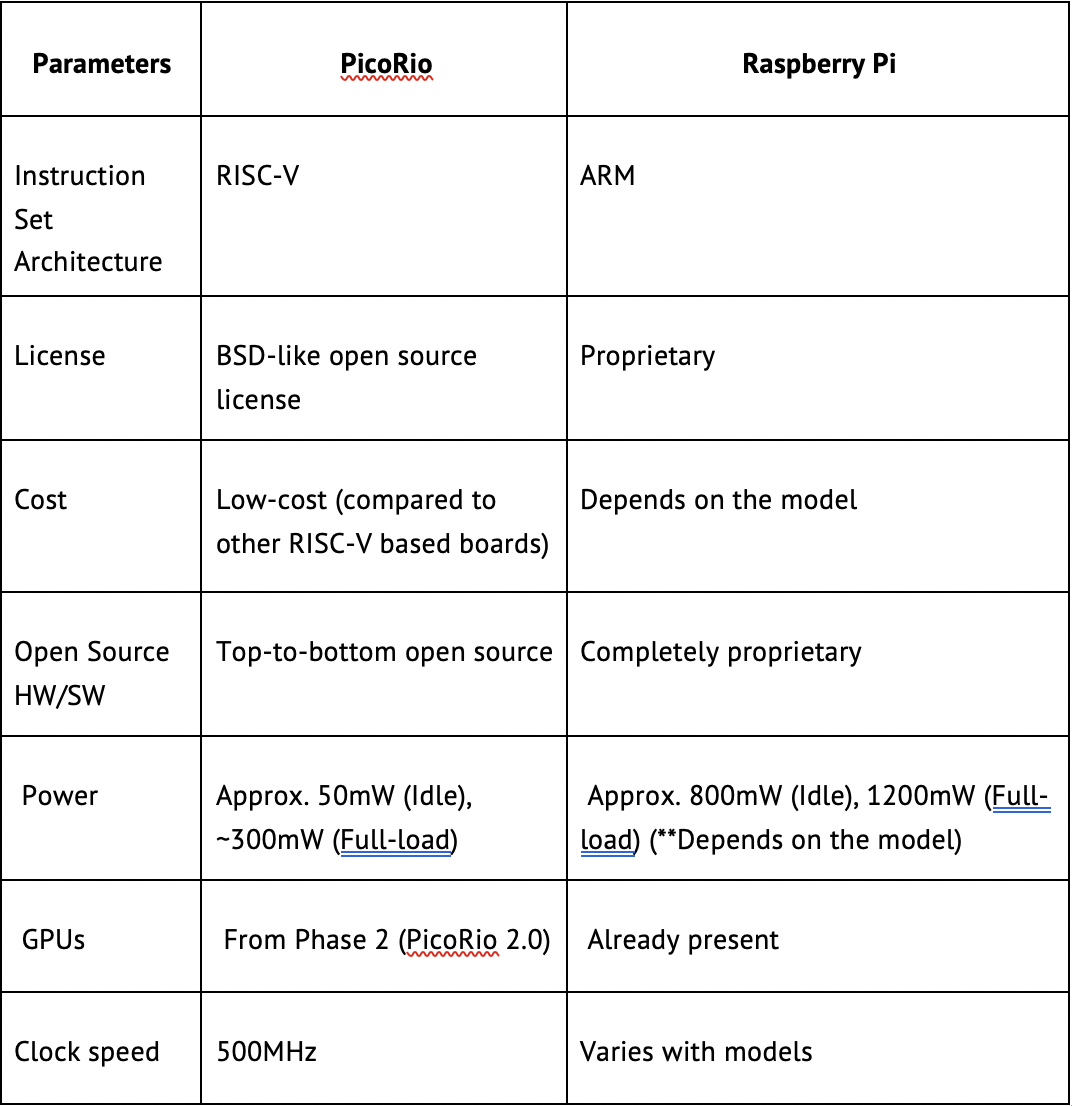PicoRio is an open-source, RISC-V small-board computer by the RISC-V International Open Source (RIOS) laboratory at Tsinghua-Berkeley Shenzhen Institute. The RIOS Lab works on elevating the RISC-V software and hardware ecosystem. PicoRio is an affordable, Linux-capable RISC-V hardware platform to help software developers to design RISC-V based core. PicoRio started with a motivation of low-cost, low-power, software capable boards. What does PicoRio being open source mean? PicoRio will have SoC, package design, board, and software as open-source unlike Raspberry Pi with proprietary Broadcom SoC. But to be clear on this point PicoRio developed industrial strength high-quality IP, with each IP to go through silicon tapeout, manufacture, and verification.
Here’s a small comparison of PicoRio v/s RPI

PicoRio 1.0 (Phase 1) does not have GPU support. But they plan to support it in PicoRio 2.0 by partnering with Imagination integrating existing GPUs. One of the main differences to point out is the power drawn by PicoRio is much lesser than RPI, even with high performance. This will become an alternative to RPI as it involves open-source ISA on which developers can build and deploy CPU cores without royalty fees.
In comparison to other RISC-V boards like SiFive which costs hundreds of dollars, PicoRio will become very affordable to consumer use (students, hobbyists, and even developers).
Expected features of PicoRio 1.0:
- 4 x RISC-V 64-bit CPU cores @ 500 MH
- Die size: 4.3mm x 3.4mm
- General-purpose quad RV64GC CPU cluster + RM32IMC CPU always-on core
- 512KB L2 cache
- Support LPDDR4 memory, USB 3.0, UART, I2C, and SPI interfaces (Closed-source)
What things can be expected to be open-source hardware in the next generations of PicoRio?

For RISC-V developers, this will be a very affordable and powerful board to develop CPU cores. We expect many exciting features in the upcoming versions of PicoRio in the following years.